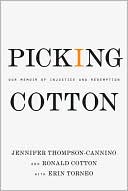Warehousing Violence, Vol. 3
Warehousing Violence addresses an issue of major concern for the prison system - how to maintain order amongst violent criminals who are in prison for life. Fleisher, an anthropologist who served as a line corrections officer at a maximum security prison in California, points to the success of at least one experiment in non-violence among very violent people. Through a mixture of hands-on management, strict control and innovative prison industry, he shows how even the 'hardest cases' can be...
Search in google:
From overcrowding to violence, the American prison system is facing its worst crisis in decades. And, as if to add to the problem, more and more inmates are classified as violent--permanent dangers to society. How does an already overcrowded system "warehouse" its worst cases--and still maintain a semblance of order and non-violence behind prison walls? The author, an anthropologist who served as a line corrections worker at a maximum security prison in California, points to the success of at least one program in warehousing society's most violent cases. Fleisher describes how even the hardest cases can be kept relatively placid behind bars, through a mixture of hands-on management, strict control, and innovative prison industry. These ethnographic accounts of prison life from inmates, staff, and administrators--and the ever present threat of violence--make for fascinating reading and an invaluable contribution to our knowledge base in developing sound corrections policies. "Mark Fleisher's Warehousing Violence makes an important contribution to our depth of understanding of prison culture and of the officers and inmates who make their lives in this world. . .a realistic depiction of the people who inhabit a single federal maximum security prison. It does not exaggerate, romanticize, or promote the author's values or political agenda. Fleisher writes insightfully about his role as a true participant observer. . . he writes well."
ForewordEthnography and Social PolicyUSP-LompocSystems of ControlFieldworkRapport with InmatesLife InsideSexScenes of DisciplineScenes of ViolenceMainline TalkCustodyA Growing American Industry








